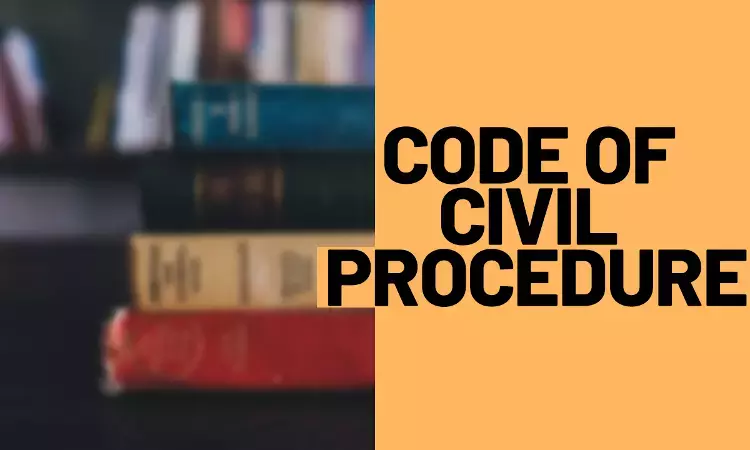- Home
- /
- High Courts
- /
- Kerala High Court
- /
- Order 11 Rule 1 CPC | Plea For...
Order 11 Rule 1 CPC | Plea For Interrogatories Can't Be Used To Make Roving Inquiry, 'Test Of Prejudice' Will Decide Its Merit: Kerala High Court
K. Salma Jennath
15 May 2025 5:05 PM IST
The Kerala High Court has recently observed that a subsequent or second application seeking to deliver interrogatories to a party is not barred when there is a subsequent cause of action or changed circumstances.For context, interrogatories are written questions which one party can ask the other party to get clarity on facts, after taking permission from the court. Justice K Babu dismissed...
The Kerala High Court has recently observed that a subsequent or second application seeking to deliver interrogatories to a party is not barred when there is a subsequent cause of action or changed circumstances.
For context, interrogatories are written questions which one party can ask the other party to get clarity on facts, after taking permission from the court.
Justice K Babu dismissed the Original Petition challenging the order of the Trial Court that permitted the respondent (plaintiff) to deliver interrogatories to the petitioner (defendant), and refused to interfere with the trial court's order.
After looking into the interrogatories delivered by the respondent as well as the objection taken by the petitioner before the Trial Court–that the respondent did not produce the final judgment and decree in another suit that partitioned the properties to the parties– the High Court found that when relevant documents like the final judgment and decree could not be traced out from the Trial Court, this resulted in a "changed" cause of action.
This, the court said, would permit a subsequent application seeking to deliver interrogatories even in cases where the previous application was dismissed as not pressed.
It said:
“The plaintiff consented to dismiss I.A No.255/2017 as not pressed on 28.07.2017 before the commencement of the trial. The trial commenced on 07.03.2019. The plaintiff prayed for time to produce the documents. On 28.03.2019, the plaintiff reported in the Court that the final judgment and decree in I.A No.512/1970 on the file of the Sub Court, Tirur, which are relevant documents, were not traced out. After that, the plaintiff filed I.A No.843/2019, which was allowed by the Court on 15.10.2019. A subsequent application seeking leave to deliver interrogatories was filed on a changed cause of action. It cannot be said that the plaintiff is barred from making a second application on a subsequent cause of action. The challenge on the impugned order on this ground also falls to the ground. Therefore, I find no reason to interfere with the order impugned.”
The court contrasted the positions of law in England and in India, and found that the power under Order XI Rule 1 of the Code of Civil Procedure does not permit interrogatories to be on par with cross-examination or to ascertain the nature of the opponent's case but only to support one's own.
On the purpose of serving such questions the court said:
"The object and purpose of serving interrogatories is to enable a party to require information from his opponent for the purpose of maintaining his own case. Answering the interrogatories might often shorten the trial proceedings and save the time of the court and parties, besides saving expenses for summoning witnesses, documents and the like. This power must not be confined within narrow limits. It should be used liberally to serve the interest of justice. Nevertheless, the power is to be exercised with great care and caution so that it is not abused by any party".
The Court also observed that the interrogatories delivered cannot be used to go on a "fishing expedition or embark on a roving inquiry" or to obtain discovery of facts which constitute exclusively the evidence of his adversary's case. Finding that the merit of the petition has to be decided on the touchstone of 'prejudice', the court said:
“It is true that the trial proceedings are in the final stage. I am of the view that the merit of the petition seeking leave to deliver interrogatories is to be decided on the touchstone of 'prejudice' even in the advanced stage of trial. The ultimate test shall be the 'test of prejudice'. In the present case, defendant No.1 has no case that any prejudice would be caused to him by way of answering the questions delivered. The answer to a question relating to defendant No.1's title over the property stated to have been gifted to his grandson cannot be the discovery of a fact which constitutes exclusively defendant No.1's evidence. For the fair disposal of the case, I am of the considered view that the interrogatories sought to be delivered are relevant. The interrogatories relate to only the matters in question. Those questions are not put to test the credibility of defendant No.1.”
It, thus, dismissed the plea.
Case No: OP(C) No. 2794 of 2019
Case Title: K. C. Sivasankara Panicker v. K. C. Vasanthakumari @ K. C. Vasanthi and others
Citation: 2025 LiveLaw (Ker) 275
Counsel for the Petitioner: R. Rajesh Kormath, K. Dilip
Counsel for the Respondents: Meena A., Vinod Ravindranath, K. C. Kiran, M. R. Mini, M. Devesh, Anish Antony Anathazhath, Thareeq Anver K., and Nivedhitha Prem V.



